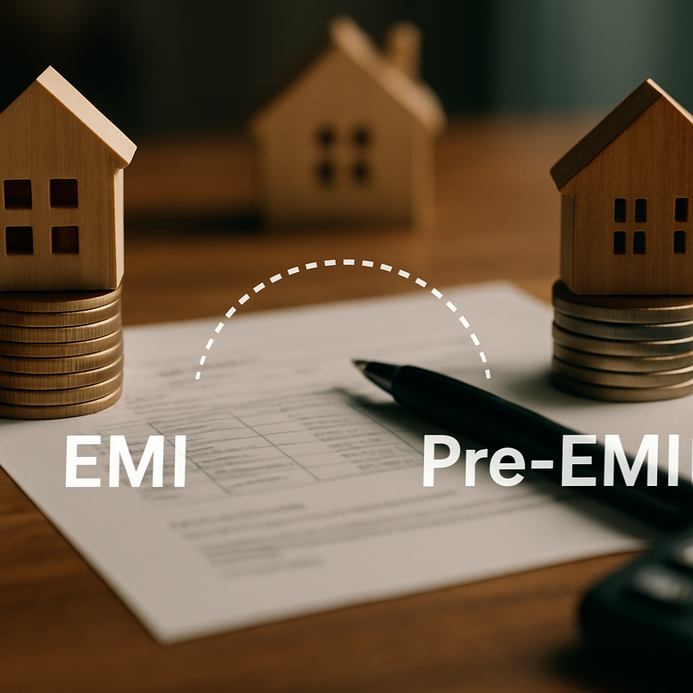TDS on Buying Property: 5 Essential Clauses You Need Now
- 1 Introduction: The Importance of a Solid Sale Agreement
- 2 Clause 1: Penalty for Delay in Possession
- 3 Clause 2: Construction Quality Standards
- 4 Clause 3: Specifications and Amenities Listing
- 5 Clause 4: Payment Schedule and TDS Considerations
- 6 Conclusion on TDS Considerations
- 7 Clause 5: Ownership and Title Transfer Conditions
- 8 Conclusion: Final Thoughts on Protecting Your Investment
- 9 FAQ
Introduction: The Importance of a Solid Sale Agreement
So, you’re diving into the property market in India? Smart choice. But let’s get one thing straight: understanding Tax Deducted at Source (TDS) is a game-changer. Especially if you’re a home buyer or even dealing with Non-Resident Indians (NRIs). That TDS bit can really shake up how you look at your investment!
A solid sale agreement really tells both parties what’s what. It’s like your safety net, laying out all those key details of the deal. Let’s break down five must-have clauses that you definitely can’t ignore, alright?
1. TDS Obligations: First off, who’s paying the TDS? Under Section 194IA, if you’re buying a property that costs more than ₹50 lakhs, you’re on the hook for 1% TDS. If you mess this up, there are penalties waiting. Clarity here is a must.
2. Payment Terms: This one’s pretty basic but oh-so-important. Clearly lay out how the payments work. What are the deposits? When’s the money due? If you’re an NRI, you’ll also need to figure out the whole currency exchange scene.
3. Title and Ownership: Who owns this property anyway? Your agreement should spell that out. Make sure no hidden claims or liens are lurking—nobody wants a nasty surprise later on.
4. Possession and Handover: You don’t want to end up on a wild goose chase here. Explicit timelines for possession should be in black and white. Just imagine the financial mess if delays crop up!
5. Confidentiality Clauses: If you’re buzzing around commercial property in Bangalore, keeping things hush-hush can be key. These clauses protect sensitive info that can give you an edge in competitive situations.
Unveil the 50-50 payment plan
TDS Implications for NRIs
Hey NRIs! Listen up. If you’re buying from an NRI seller? TDS rules get a bit hairy. You’re looking at a 40% TDS deduction on capital gains under the Income Tax Act. Knowing this stuff can save you from a headache down the line.
| Clause | Importance |
|---|---|
| TDS Obligations | Clarifies who’s responsible, avoiding any tax-related mess. |
| Payment Terms | Defines how the money moves, keeping potential disputes at bay. |
| Title and Ownership | Safeguards future ownership, steering clear of legal drama. |
| Possession and Handover | Sets conditions for taking possession, so you lose as little financially as possible. |
| Confidentiality Clauses | Shields sensitive details, especially important in commercial transactions. |
If you want to dive deeper into the nitty-gritty of TDS when buying property, check out these resources: IndiaFilings and Bajaj Finserv. And if you’re making your way through new territories, articles like this one can help.
Clause 1: Penalty for Delay in Possession
Let’s talk about something crucial, penalties for delay in possession. Trust me, you’ll want this in your property purchase agreement. If a seller drags their feet on delivering the property? You, the buyer, need a way to get compensation. That’s what this clause is all about.
Implications of Delays
Delays can hit you financially. Think of extra costs like temporary housing or moving expenses. Knowing how penalties work gives you a safety net against these surprise costs.
For example, imagine if the seller is late by six months. If your contract states a penalty of ₹10,000 a month, that adds up to a whopping ₹60,000.
Data Table: Sample Penalties for Delay
| Delay Duration | Monthly Penalty | Total Penalty Amount |
|---|---|---|
| 1 Month | ₹10,000 | ₹10,000 |
| 3 Months | ₹10,000 | ₹30,000 |
| 6 Months | ₹10,000 | ₹60,000 |
| 12 Months | ₹10,000 | ₹120,000 |
Without this clause, you could be left high and dry if problems pop up. And if you’re dealing with NRIs, like understanding TDS for NRI purchasing, knowing these details is even more critical.
Getting that penalty clause right? It’s peace of mind for sure. And for TDS related to property, check out the details here: IndiaFilings.
Want to explore home loans and how to safeguard yourself during property purchases? Learn more here and here.
Clause 2: Construction Quality Standards
Okay, so you’re thinking about the construction quality, right? It’s essential to get this sorted when purchasing property. Make sure your agreement has some solid clauses in place to protect your investment and overall safety.
1. Quality Specifications: The contract should nail down what materials and techniques are being used, sticking to the National Building Code standards. No one wants to deal with structural defects later.
2. Inspections: A clause for regular inspections during construction is a must. This way, you can catch any issues early on.
3. Defect Liability Period: This should make clear that the builder will fix defects for a specific time after the buyer moves in, usually around one to two years works.
4. Compliance with Local Laws: Builders need to promise they’ll follow all local regulations. Otherwise, you could be left with a legal mess!
5. Warranty of Workmanship: A warranty clause is a big plus, guaranteeing that the work meets agreed standards for a set period.
TDS on Buying Property: Key Considerations for NRI Buyers
NRIs, this one’s for you! When you buy property in India, don’t forget the TDS obligations. Under Section 194IA, you’re looking at a 1% TDS on the property value. Check out this TDS article for detailed rules.
Comparison Table: Key Construction Quality Clauses
| Clause | Description | Importance |
|---|---|---|
| Quality Specifications | Material and techniques defined | Ensures safety and durability |
| Inspections | Checks by an independent party | Prevents defects before completion |
| Defect Liability | Builder’s obligation to fix issues | Protects against hidden costs |
| Compliance | Adherence to local laws and standards | Avoids legal penalties |
| Warranty | Guarantees work quality for a specified time | Offers financial security |
Skipping out on these clauses? A risky move! Esp with buying commercial properties in Bangalore or residential units in Goa. For more on TDS implications related to NRIs, check out this guide.
Looking for further tips? You might find valuable insights in these articles: Checklist for Quality Construction in a New Flat, and Understanding TDS on Purchase of Property.
Clause 3: Specifications and Amenities Listing
You know what’s super important? A clear list of what you’ll get in your new home. That specifications section in your sale agreement—yeah, it’s crucial. It lays out the quality of finishes, fittings, and amenities, which ultimately protects your investment.
If you’re diving into property purchases, pay attention to TDS obligations in relation to amenities—especially if you’re dealing with an NRI.
| Aspect | Details |
|---|---|
| TDS Rate for NRIs | 40% for long-term capital gains |
| TDS Rate for Others | 1% on property sales over ₹50 lakhs |
| Compliance Deadline | 30 days from the date of transaction |
Furthermore, if you’re buying commercial property in Bangalore, don’t forget that the specific amenities should be outlined. You’ll want that clarity in your sale agreement, or else you might just walk into a minefield of misunderstandings.
When you’re house-hunting, checklist the basics like access to water, electricity backup, security features, and neighborhood amenities. These details seriously add to property value and living experience.
Getting specific about what you want is key—to avoid disputes and enhance your investment security. For more on TDS implications, read this Financial Express article. And, for tips on mastering builder-buyer agreements, take a look here.
Clause 4: Payment Schedule and TDS Considerations
Alright, let’s dig into that wallet again. TDS on property purchases? You bet it’s vital for anyone eyeing real estate in India. Especially for NRIs and anyone considering buying commercial property in Bangalore or Goa.
Key TDS Rates and Compliance
According to Section 194IA of the Income Tax Act, buyers need to whip out 1% in TDS when purchasing a property over ₹50 lakhs. Get this wrong, and penalties can rain down.
TDS Payment Schedule
| Transaction Type | TDS Rate | Payment Timeline | Compliance |
|---|---|---|---|
| Residential Property | 1% | Within 30 days from the end of the month | Buyer takes care of it! |
| Commercial Property (Bangalore) | 1% | Within 30 days from the end of the month | Buyer’s job |
| NRI Property Sales | 40% (TDS on capital gains) | Upon payment of sale consideration | Must withhold TDS |
If you’re an NRI buyer, keep your eyes peeled. The TDS you’ll need to deal with can complicate things a bit.
To really get a grip on TDS requirements, check out this handy guide: Bajaj Finserv. And definitely be aware of compliance deadlines to avoid costly mistakes.
Conclusion on TDS Considerations
Wrapping it up here, let’s shine a light on how understanding TDS responsibilities can make or break your property buying experience. Whether you’re pursuing commercial investments in busy Bangalore or the serene locales of Goa, being informed and prepared is your best bet.
Essential Clauses for Security
1. TDS Compliance
Make sure your agreement clearly indicates who’s covering TDS. This is key, especially if you’re buying from an NRI—nobody wants to stumble into tax troubles!
| Clause | Importance |
|---|---|
| TDS Payment Responsibility | Eliminates disputes over tax responsibility |
| Property Title Assurance | Secures legal ownership, dodging any fraud |
| Dispute Resolution Process | Enables quick fixes to potential conflicts |
| Financial Adjustments | Shields against sudden financial surprises during the transaction |
| Completion Timelines | Gives all parties a clear timeline, keeping things on track |
2. Property Title Assurance
This one’s a no-brainer. It’s about verifying ownership. Huge for avoiding disputes, particularly with commercial purchases in buzzing cities.
3. Dispute Resolution Process
Including arbitration details? Smart move. It speeds up any disagreements without that dreaded court time!
4. Financial Adjustments
Get specific about how costs will work—payment for TDS, unpaid dues, and utilities need clear direction. Super important for NRIs buying property.
5. Completion Timelines
Set deadlines for everything. They hold everyone accountable, cutting down on delay risks.
For a full breakdown of TDS requirements, don’t forget to review IndiaFilings on TDS and LiveMint’s guide on TDS with NRIs.
With these clauses in your back pocket, especially for NRIs, you’ll sidestep potential pitfalls. Get a good grip on TDS regulations and ensure a secure investment in beautiful India, whether you’re after prime real estate in Goa or fast-paced commerce in Bangalore!
And for extra nuggets of wisdom on TDS impacts, check out this article. Happy investing!
Clause 5: Ownership and Title Transfer Conditions
When it comes to buying property, keeping ownership and title transfer on point is part of the deal. This clause is your shield against disputes later on. It ensures the seller can legally part ways with the property and you, the buyer, snag a clear title.
One thing you should know is about the Encumbrance Certificate—it’s like a green light, showing that the property is free from legal issues. And don’t forget your TDS regulations. For instance, if the property’s price tag is over ₹50 lakhs, expect that 1% TDS deduction under Section 194IA to kick in—applies to all sellers, even NRIs!
| Property Type | TDS Rate | Relevance |
|---|---|---|
| Residential Property | 1% | Applies to all buyers, including NRIs |
| Commercial Property | 1% | Relevant for Bangalore property purchases |
| NRI Seller Transactions | 40% (of gains) | Follows TDS rules based on capital gains |
If an NRI is selling the property, don’t forget, you need to deduct TDS at the proper rates based on their income tax slab. Missing this can lead to penalties or complications when you go to register the property.
For a deeper understanding of TDS, check these out:
– IndiaFilings on TDS
– TDS for NRI Property Buyers – LiveMint
– Tax Implications on Property Transactions – TaxGuru
And for more buyer-friendly resources, check these articles:
– Builder-Buyer Agreement: Key Clauses You Must Know
– NRI Buying Property in India: What You Must Know
Keeping ownership and title transfer in check reduces risks and ensures peace of mind, no matter where you’re investing.
Conclusion: Final Thoughts on Protecting Your Investment
Navigating TDS while buying property is like wearing a helmet while cycling—not glamorous, but super necessary for a smooth ride. Having those essential clauses in your purchase agreement can truly safeguard your investment.
Essential Clauses for Security
1. TDS Compliance
Make sure your agreement clearly indicates who’s covering TDS. This is key, especially if you’re buying from an NRI—nobody wants to stumble into tax troubles!
| Clause | Importance |
|---|---|
| TDS Payment Responsibility | Eliminates disputes over tax responsibility |
| Property Title Assurance | Secures legal ownership, dodging any fraud |
| Dispute Resolution Process | Enables quick fixes to potential conflicts |
| Financial Adjustments | Shields against sudden financial surprises during the transaction |
| Completion Timelines | Gives all parties a clear timeline, keeping things on track |
2. Property Title Assurance
This one’s a no-brainer. It’s about verifying ownership. Huge for avoiding disputes, particularly with commercial purchases in buzzing cities.
3. Dispute Resolution Process
Including arbitration details? Smart move. It speeds up any disagreements without that dreaded court time!
4. Financial Adjustments
Get specific about how costs will work—payment for TDS, unpaid dues, and utilities need clear direction. Super important for NRIs buying property.
5. Completion Timelines
Set deadlines for everything. They hold everyone accountable, cutting down on delay risks.
For a full breakdown of TDS requirements, don’t forget to review IndiaFilings on TDS and LiveMint’s guide on TDS with NRIs.
With these clauses in your back pocket, especially for NRIs, you’ll sidestep potential pitfalls. Get a good grip on TDS regulations and ensure a secure investment in beautiful India, whether you’re after prime real estate in Goa or fast-paced commerce in Bangalore!
And for extra nuggets of wisdom on TDS impacts, check out this article. Happy investing!
FAQ
- What is TDS in property transactions?
TDS, or Tax Deducted at Source, is a tax that is deducted at the time of property purchase based on the property’s transaction value. - How much TDS is applicable when buying property?
1% TDS is applicable for property transactions over ₹50 lakhs, while NRIs are subject to a 40% TDS on capital gains. - What should I check in a sale agreement?
You should check TDS obligations, payment terms, title ownership, possession timelines, and confidentiality clauses. - What is a penalty for delay in possession?
A penalty for delay in possession compensates the buyer for any financial damages caused by a seller’s failure to deliver the property on time. - Why is construction quality important?
Construction quality standards ensure safety, durability, and compliance with local regulations, which protects your investment.













